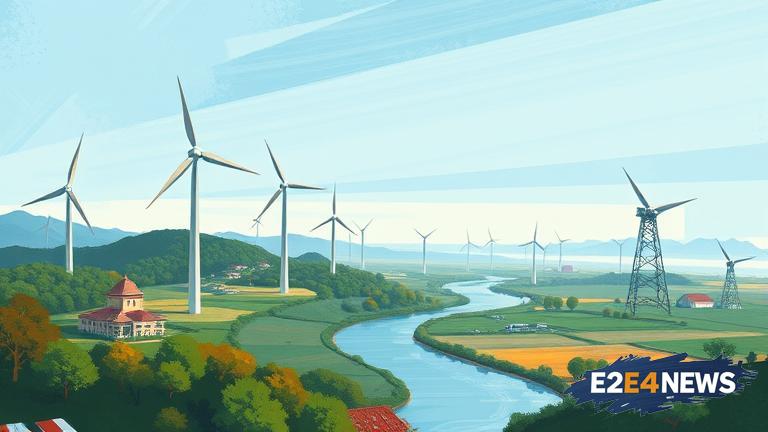The Vietnamese government has given the green light to a task that will revise the country’s national energy master plan. This move is expected to play a crucial role in shaping the nation’s energy future and ensuring sustainable development. The revised plan will focus on creating a low-carbon economy, reducing greenhouse gas emissions, and promoting the use of renewable energy sources. The task will be carried out by the Ministry of Industry and Trade, in collaboration with other relevant agencies and international organizations. The revision process is expected to take into account the country’s rapid economic growth, increasing energy demand, and the need to mitigate climate change. The new plan will prioritize the development of renewable energy sources, such as solar and wind power, and aim to increase their share in the national energy mix. It will also focus on improving energy efficiency, reducing energy waste, and promoting the use of clean energy technologies. The government has set a target to reduce greenhouse gas emissions by 9% by 2030, compared to business-as-usual scenarios. To achieve this goal, the revised plan will include measures to promote sustainable energy development, such as increasing the use of biofuels, developing smart grids, and improving energy storage systems. The task will also involve assessing the country’s energy security, identifying potential risks and challenges, and developing strategies to address them. The revised plan will be developed in line with the country’s socio-economic development strategy, ensuring that energy development is aligned with national priorities. The government has emphasized the importance of public participation and stakeholder engagement in the revision process, to ensure that the new plan reflects the needs and concerns of all stakeholders. The task is expected to be completed by the end of 2023, and the revised plan will be submitted to the government for approval. The revision of the national energy master plan is a significant step towards achieving Vietnam’s sustainable development goals, and it is expected to have a positive impact on the country’s energy sector and the environment. The government has committed to creating a favorable business environment, to attract investment in the energy sector and promote the development of renewable energy projects. The revised plan will also include measures to improve energy access, particularly in rural and remote areas, and to promote energy efficiency in buildings and industries. The task will involve conducting studies and analyses, to identify the most effective ways to reduce energy consumption and greenhouse gas emissions. The government has also emphasized the importance of international cooperation, to learn from best practices and experiences in other countries, and to access new technologies and financing mechanisms. The revision of the national energy master plan is a complex task, requiring the involvement of multiple stakeholders and the coordination of various activities. However, it is a crucial step towards creating a sustainable energy system, and ensuring that Vietnam’s energy development is aligned with its socio-economic and environmental goals. The government has committed to providing the necessary resources and support, to ensure the successful completion of the task. The revised plan will be a key document, guiding the development of the energy sector, and shaping the country’s energy future. It will also provide a framework for the implementation of energy policies and programs, and for the monitoring and evaluation of progress towards sustainable development goals.
